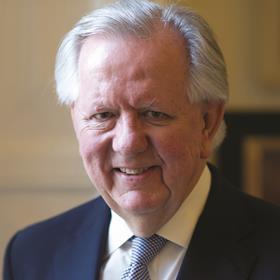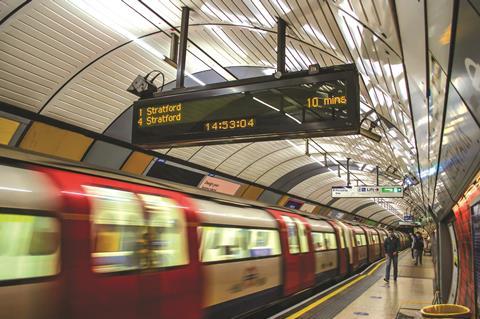There’s a very splendid brass plate on the door of 10 Downing Street, but it doesn’t say ‘Office of the Prime Minister’.

In fact, it announces ‘First Lord of the Treasury’. Robert Walpole, who held that office, was the first occupant of the unassuming street in Westminster in 1721 that has been home to our leaders ever since. And since then, our politics have been dominated by the Treasury. It is primus inter pares – first among equals around the Cabinet table.
Ironically, the title prime minister was never formalised, although Walpole is said to have been the first to be known by it. I offer this vignette simply to make a point that is massively important to the UK in 2023. The Treasury dominates government, whether Tory or Labour, to a degree that is hardly imaginable to most people, who assume, reasonably enough, that it is the prime minister who makes the big decisions. In every business, the chief financial officer is second only to the chief executive in the corporate pecking order, but clearly second. This is not true in this country.
For generations, the Treasury has set its face against investment in any form
Former PM Margaret Thatcher was at pains to point out that national budgets were essentially household budgets writ large. If you spend more than you earn, you must borrow the rest. The cost of debt becomes a huge burden on spending, and so it goes. Prudence is a virtue.
But modern economies must balance current spending with investment in our future. For generations, the Treasury has set its face against investment in any form. Departing Labour chief secretary Liam Byrne’s infamous “I’m sorry there’s no money” note to his Conservative successor in 2010 was an insider joke. I was told it myself several times during my time as a minister.

In 1964, Labour PM Harold Wilson, himself an economist, tried to break that mindset by establishing the Department for Economic Affairs (DEA) as the antidote to Treasury dominance. Suffice to say for many reasons, the DEA fizzled out in 1967. The Treasury had swallowed it as a python swallows a donkey.
The tragedy for the UK is that this malign influence on our government is as alive now as ever. And it is damaging our future.
Increasing overall costs
Whatever one’s view of HS2, it is ludicrous to defer spending, as the Treasury dictates, when the result is simply to increase the overall cost. The same is true of the Lower Thames Crossing – a vital artery in terms of our export of physical goods to Europe and beyond. The Dartford Tunnel is 60 years old this year. It is frequently closed for essential maintenance.
If more capacity is not provided, very soon traffic will have to go the wrong way round the M25 to access Kent. The Treasury has deferred spending on the new crossing to save money. In reality, it has guaranteed a huge problem for our exporters to add to post-Brexit bureaucracy.
My own experience was having to fight for the extension of the Jubilee line from Green Park to Stratford. The Treasury hated the project and did everything it could to frustrate it. For reasons too complicated to tell here, we eventually won. A project that opened on millennium night and cost under £4bn now delivers more than that every year to the London economy. Former PM Liz Truss was right about needing to tackle this cancer at the heart of our finances.
“The answer is no, now what’s the question?” is no way to run an economy in which our infrastructure is so shamefully under-resourced.
It is likely that next year will see a Labour government installed. Shadow chancellor Rachel Reeves has won plaudits for her approach to managing the economy. But her real test will be whether she can improve on her Labour predecessor’s attempt and reform our economy into one that recognises that spending on infrastructure is not a cost, it is an investment. I’m not holding my breath.
Steve Norris is chairman of Soho Estates





























No comments yet